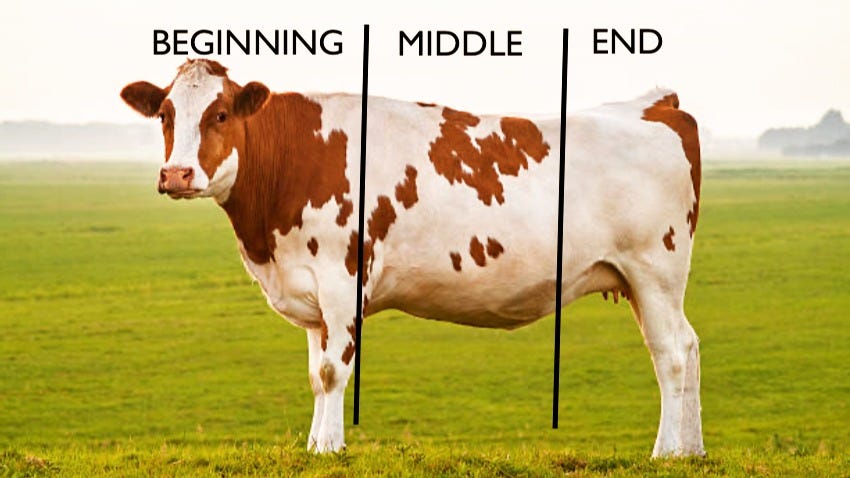How do we define story?
Some people (too many people) define a story as anything with a beginning, middle, and end. Therefore I declare this cow is a story.
Maybe that definition is a wee bit simplistic. After all, any phenomenon that is neither a single point nor infinite, that has terminal duration in space or time, can be divided into beginning, middle and end. So you when you’ve said that achingly obvious truism, you’ve said nothing.
Another hoary chestnut is that all art is self-expression. But this is small potatoes for an artist’s goal. A month-old baby can express itself perfectly well in order to have all its needs supplied, both material and emotional. As Teddy, the preternaturally enlightened little boy in Salinger’s eponymous story, says:
“Poets are always taking the weather so personally. They’re always sticking their emotions in things that have no emotions.”
He goes on to illustrate how emotions are unnecessary, even in poetry:
“‘Nothing in the voice of the cicada intimates how soon it will die,’ “ Teddy said suddenly. “’Along this road goes no one, this autumn eve….Those are two Japanese poems. They’re not full of a lot of emotional stuff.”’
Art is not about feeling; it’s about seeing. Specifically, it’s about allowing the viewer to see the world through the artist’s eyes, from the artist’s vantage point.
So how to define story?







